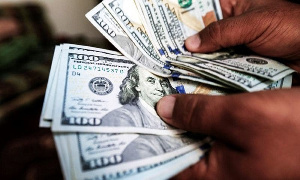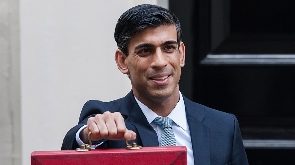Brazil’s president Luiz Inácio Lula da Silva has called on developing countries to work towards replacing the US dollar with their own currencies in international trade, lending his voice to Beijing’s efforts to end the greenback’s dominance of global commerce.
Kicking off his first state visit to China since taking office in January, Lula called for the countries of the so-called Brics group of nations — which in addition to Brazil and China includes Russia, India and South Africa — to come up with their own alternative currency for use in trade.
“Every night I ask myself why all countries have to base their trade on the dollar,” Lula said in an impassioned speech at the New Development Bank in Shanghai, known as the “Brics bank”.
“Why can’t we do trade based on our own currencies?” he added, drawing loud applause from the audience of Brazilian and Chinese dignitaries. “Who was it that decided that the dollar was the currency after the disappearance of the gold standard?”
Lula’s call to shed dollar dependence dovetailed with Beijing’s increasing efforts to promote use of the renminbi in settlement of cross-border commodities trades, as Chinese policymakers seek to strengthen the role of the world’s second-largest economy in the global financial system.
The warm reception in Shanghai also came as Brazil’s leftist leader has sought to redirect the country’s foreign policy to a more multilateralist stance, with an emphasis not only on good relations with the US — he visited President Joe Biden in February — but also with China and the developing world.
Lula’s far-right predecessor Jair Bolsonaro had prioritised bilateral ties with the US under former president Donald Trump and other nations led by populist leaders such as Hungary and Israel.
China’s leader Xi Jinping will be keen to persuade the Brazilian president when they meet on Friday to demonstrate that appetite for rebalancing by backing a number of Beijing’s foreign policy initiatives.
These range from the Belt and Road trade and infrastructure programme to other schemes that seek to create alternative international governance systems to those dominated by the US.
Bilateral trade has ballooned over the past decade to $150.4bn last year, with China buying Brazil’s agricultural commodities and minerals and investing in the Latin American country’s large consumer market and infrastructure sector. On Thursday, Lula also visited Huawei, the Chinese telecom equipment company that is subject to US sanctions.
The growing economic relationship has encouraged both countries to promote greater use of their respective currencies in bilateral trade. This week, the Brazilian branch of the state-owned Industrial and Commercial Bank of China settled its first transaction directly in renminbi in the country, Chinese state media reported.
Lula, who was also in Shanghai for the inauguration of his protégé, former Brazilian president Dilma Rousseff, as head of the New Development Bank, used the occasion to make impassioned speech about the need for the Brics countries to trade in their own currencies. Aside from the Brics, the bank’s membership includes Egypt, Bangladesh, Uruguay and the United Arab Emirates.
“Who decided that our currencies were weak, that they didn’t have value in other countries?” he said.
“Why can’t a bank like that of the Brics have a currency to finance trade relations between Brazil and China, between Brazil and other countries? It’s difficult because we are unaccustomed [to the idea]. Everyone depends on just one currency.”
Data from global payments platform Swift shows the Chinese currency’s share of trade finance has more than doubled to 4.5 per cent since Russia’s full-scale invasion of Ukraine last year, largely on the back of a boom in shipments between Russia and China.
Maggie Wei, an economist at Goldman Sachs, said there were structural reasons to expect a growing Chinese share of global trade finance.
“In light of the renminbi’s comparatively small role in trade finance relative to China’s market share of around 15 per cent in global goods trade . . . it makes sense for the currency’s share of trade finance to continue rising,” Wei said.
But any effort by Brazil to spurn the US currency in the near term will face a substantial challenge. The dollar is vital to global commodities markets and benchmarks, which encourages top Brazilian miners such as Vale to keep most transactions dollar-denominated.
Source: ft.com
 Home Of Ghana News Ghana News, Entertainment And More
Home Of Ghana News Ghana News, Entertainment And More





